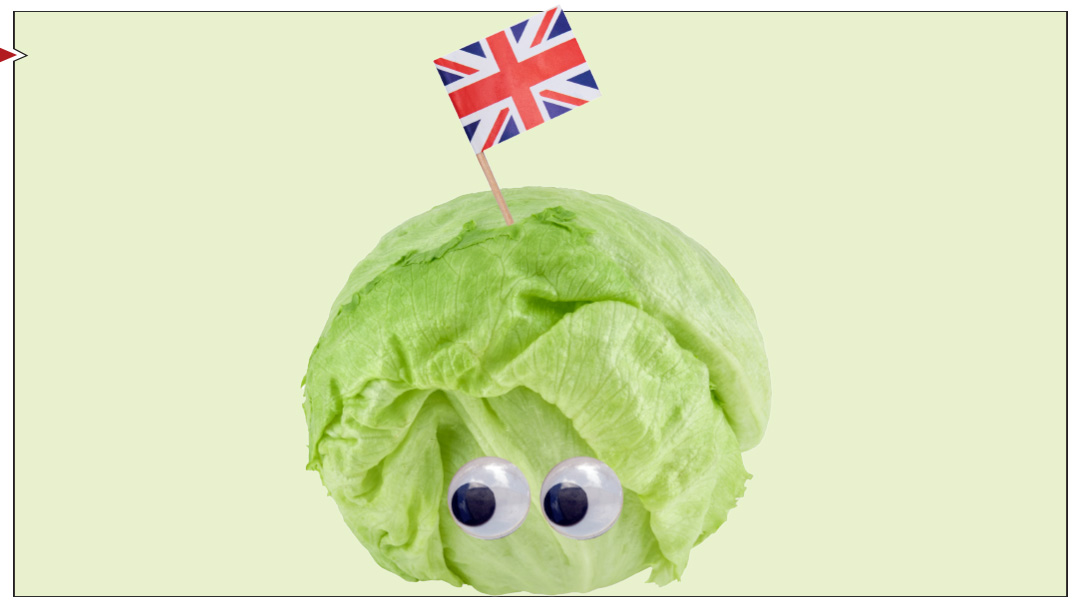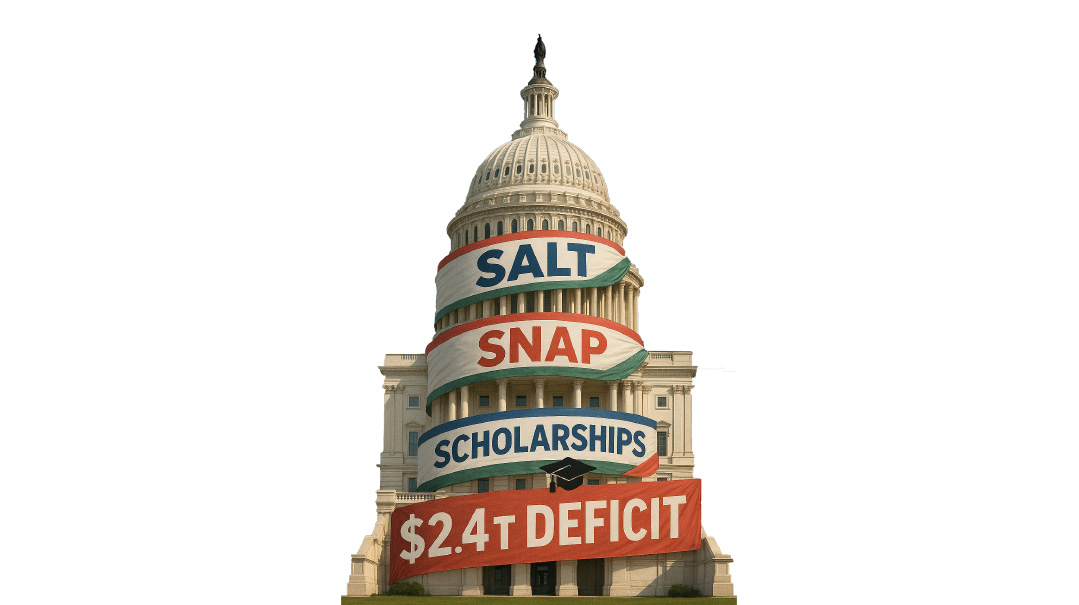British Politics Takes Leaf of its Senses

As the Conservatives attempt yet another reboot, here are a few pointers for the rocky road ahead

British Politics Takes Leaf of its Senses
As political symbols go, a head of freshly picked lettuce in a blonde wig breaks new ground. In British prime minister Liz Truss’s case — booted from office after a mere 44 days — a livestreamed tabloid stunt to see whether her career would outlast the vegetable seems a good metaphor for a bad joke of a premiership.
But while “Liz the Lettuce” was beamed onto Parliament and drew global titters, for a rudderless country in the throes of an economic crisis, Truss’s self-immolation is no laughing matter.
While the next act in the tragicomedy will be ex-chancellor Rishi Sunak, who lost to Truss in the leadership election and beat off a comeback attempt by Boris Johnson, some think that the country would be best led by a proven winner — the lettuce.
As the Conservatives attempt yet another reboot, here are a few pointers for the rocky road ahead.
Highs and Lows
First, consider the scale of the farce.
Just three years ago, under Boris Johnson’s leadership, the Conservative Party won a landslide at the general election, defeating Jeremy Corbyn’s Labour by 80 seats. Pundits talked of Johnson ruling for a decade. Instead, after three scandal-beset years, he was out, with a net popularity score of -53.
But after her economic policies triggered a collapse in the value of the pound, Truss resigned last week with an incredible -70 popularity rate according to pollster YouGov. Support for the Conservatives is now at 14 percent and the party’s electoral viability is an open question.
Identity Crisis
While leadership failures explain some of those disastrous numbers, according to political analyst Matt Goodwin, the Conservative implosion is structural.
The large number of working-class voters who abandoned Corbyn’s Labour Party and voted Conservative in 2019 lean left on economic issues, and right on culture. Those voters, he says, have never been understood by the party’s leaders and donors who lean further to the economic right and the cultural left.
Exhibit A of that trend were the Truss tax cuts, which prioritized high earners, when many of these new voters were struggling to pay bills due to inflation and soaring energy costs.
True Blue
What seems certain is that as centrist Rishi Sunak takes the Conservative reins, the short-lived Truss government represents the high-water mark of the Tory right. The disastrous results of the pledge to cut taxes will scar Britain’s right for a long time to come, and the ripples are spreading across the pond. In America, some argue that tax cuts are now politically undeliverable.
Embassy Row
One reason to mourn Truss’s self-combustion was that it ends what could have been the most Israel-friendly British government on record. In a September meeting with Yair Lapid, Truss said that she was considering moving Britain’s embassy to Jerusalem. The hara kiri of the Tory right will kill talk of the move. Instead, Australia’s recent decision to un-recognize West Jerusalem as Israel’s capital will tilt the balance the other way.
Starmer’s Past
For a Jewish community still traumatized by Corbynite anti-Semitism, the fact that the Labour Party is now polling at 54 percent versus the Conservatives’ 21 percent is disquieting.
Despite current Labour leader Keir Starmer’s campaign to rid his party of anti-Semitism, many in the community will remember one salient fact. Until Corbyn led the party to electoral wipeout, Starmer himself was a key Corbyn lieutenant.
A general election is only two years off, but if the Conservatives can’t take leave of the lettuce fiasco, the Jewish community may be left contemplating the root causes of an unlikely Labour comeback.
Revolution, Not Evolution
Will New York education authorities’ years-long campaign to reform yeshivah education be derailed by overreach in new regulations? After the state’s Board of Regents recently mandated an intrusive inspection regime tailor-made to apply to the state’s 440 yeshivos, a range of community organizations and yeshivos have struck back with a lawsuit alleging constitutional violations in both the procedure and substance of the new regulations.
Acting on behalf of Agudah, Torah Umesorah and PEARLS — which advocates for religious liberty in schools — attorney Avi Schick wrote that the new rules “imposed on yeshivos obligations and restrictions not found in other schools.”
State authorities also treated the comments process as a box-ticking exercise, rather than as the genuine consultation required by law. Further, notes the petition, “only yeshivos will be inspected for instruction in more than twenty different subject areas, and only yeshivos will be prohibited from offering instruction in those subjects in a student’s home language.”
The inspections regime, says Schick, “goes far beyond what government has a right to do. The Council for American Private Education, a national association representing private schools, characterized the regulations as the most intrusive anywhere in the country.”
The fact that the case — which is expected to be heard in December — has advanced as far as the legal stage demonstrates that as far as New York education authorities are concerned, there is no room for any of the proposals advanced by yeshivah advocates.
That very zero-sum approach and overreach is what may persuade the court to strike down the new rules, which have emerged in an attempt to force revolution, rather than evolution, on New York’s sprawling yeshivah system.
Terror Capitals
As a terror wave continues to wash over Israel, a new map of violence is emerging where two cities, Jenin and Shechem, stand out. With the Palestinian street restive across the West Bank, why have these two become the source of so many recent attacks?
According to Arab affairs expert Dr. Mordechai Kedar writing in Makor Rishon, Jenin is unusual in the absence of a powerful clan that dominates the city’s economy. Unlike other cities such as Ramallah, where the clans identify their prosperity with trade with Israel, in Jenin the city’s mainstays are the terror groups whose interest is in continued conflict.
The violence out of Shechem has grown under a new group — Lion’s Den — comprised of young killers from across the Palestinian terror-industrial complex. That, say analysts, is a sign of the further erosion of Palestinian Authority security services’ hold on the Palestinian street.
46%
Could Republican Lee Zeldin end Democrats’ dominance of New York state politics? A poll putting the congressman marginally ahead of Democratic incumbent Kathy Hochul in the gubernatorial race ahead of the November 8 vote has Democrats scrambling for new messaging. Even in deep-blue New York, it turns out, an anti-Trump, “save-our-abortion” campaign is not a winning strategy when voters are worried about inflation and crime. Fearful of a midterm Red Wave, national Democrats are taking notice.
(Originally featured in Mishpacha, Issue 933)
Oops! We could not locate your form.






